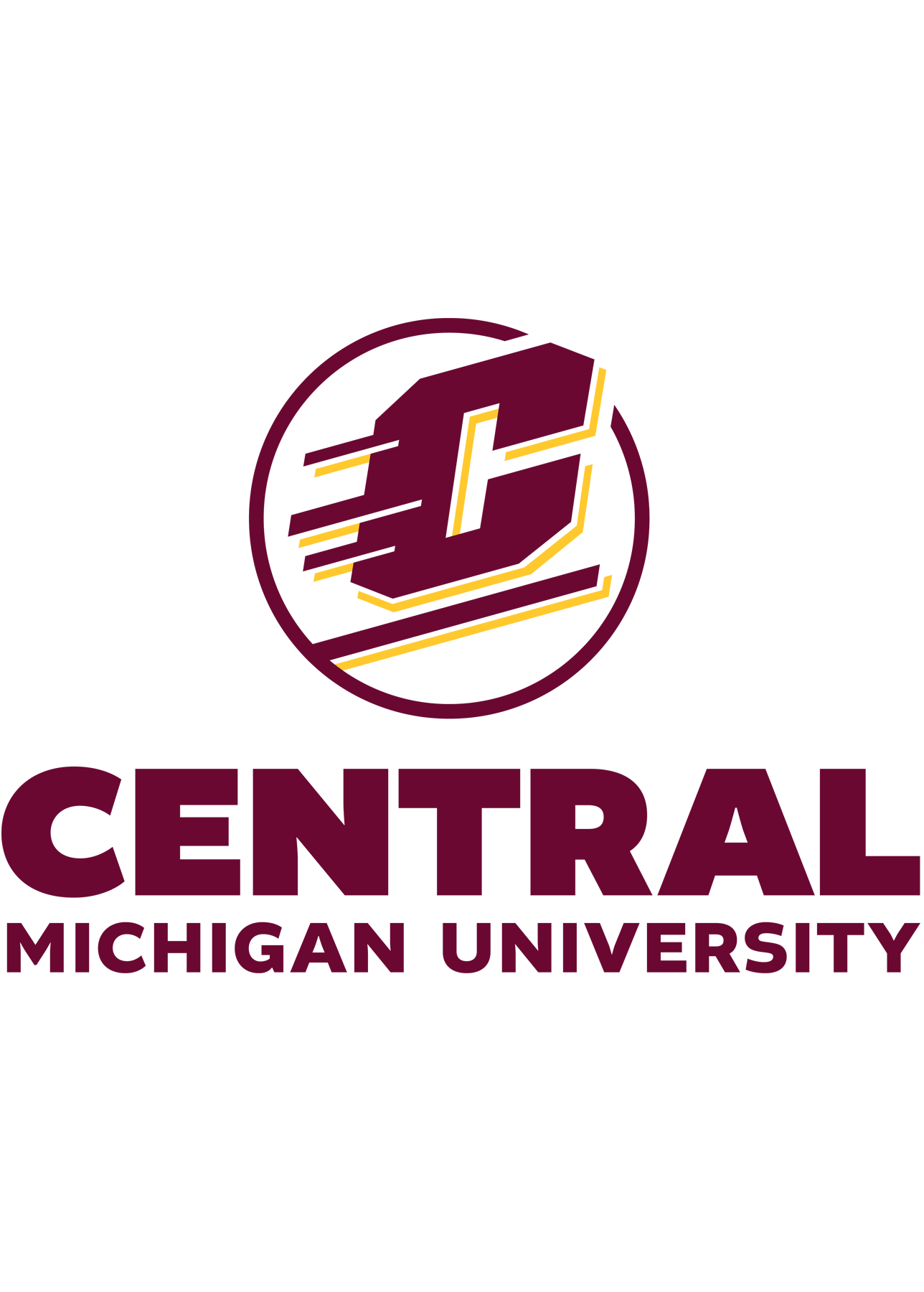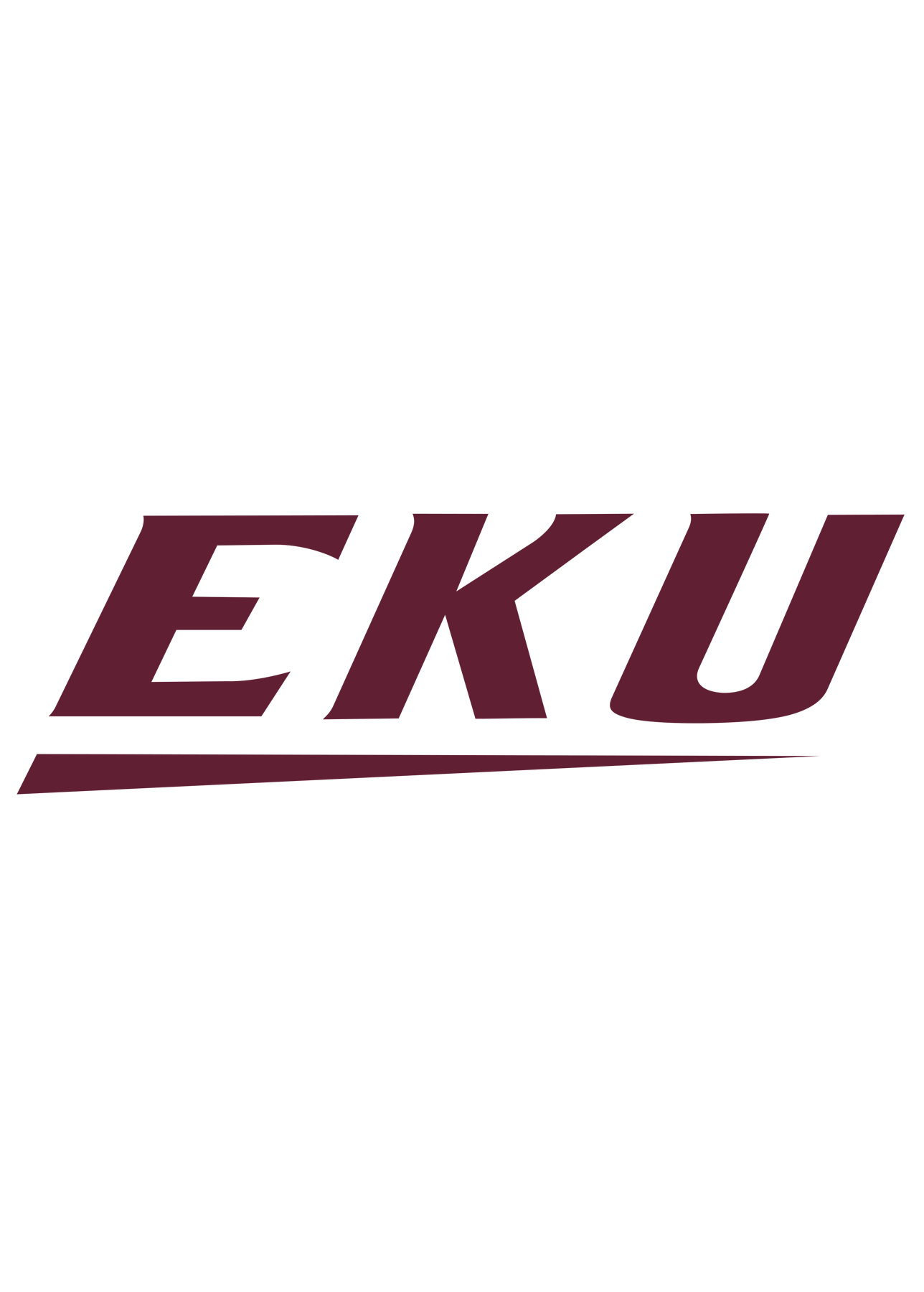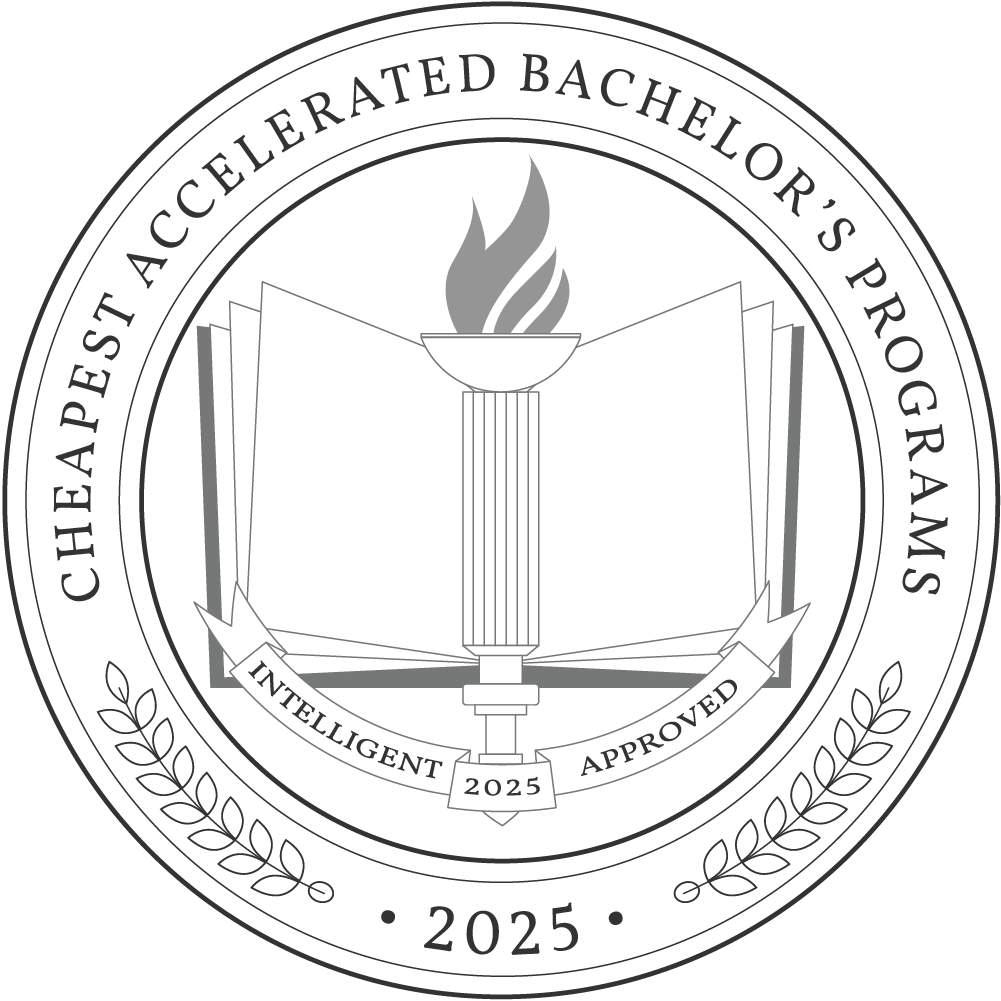If you’re a student looking to kickstart your career quickly with an accelerated program that provides both quality and affordability, you’re in the right place. Accelerated bachelor’s degree programs offer a fast track to various rewarding careers. Depending on your chosen major, you could become a high school teacher, earning a median salary of $65,220, a general manager with a median salary of $101,280, or a software developer with a median salary of $130,160. These programs typically condense the traditional four-year timeline into 18 months to three years, allowing you to enter the workforce sooner while remaining on budget.
Why Trust Us
The Intelligent.com Higher Education Team is dedicated to providing students with independent, equitable school and program rankings and well-researched resources. Our expert-driven articles cover topics related to online colleges and programs, paying for school, and career outlooks. We use data from the U.S. Department of Education’s College Scorecard, the National Center for Education Statistics, and other reputable educational and professional organizations. Our academic advisory team reviews content and verifies accuracy throughout the year for the most current information. Partnerships do not influence rankings or editorial decisions.
- Analyzed over 2,000 national, accredited, and nonprofit colleges and universities
- 800+ rankings pages are reviewed and updated yearly
- Content is informed by reputable sources, surveys, and interviews with academic advisors and other experts
- Over 100 data points are reviewed for accuracy and quality throughout the year, including sources
How we rank schools
Our list features the cheapest accelerated Bachelor’s degree programs at top colleges nationwide. Each school featured is a nonprofit, accredited institution — either public or private — with a high standard of academic quality for post-secondary institutions.
We evaluated each school’s program on tuition costs, admission, retention and graduation rates, faculty, reputation, and the student resources provided for online students. We collected data from trusted sources like the National Center for Education Statistics, individual school and program websites, school admissions counselors, and other data sources. Then, we calculated the Intelligent Score on a scale of 0 to 100 based on the following criterion:
Academic Quality:
- Admission rate versus enrollment rate
- Retention rate of students who return after year one
- Accreditation status (regional and programmatic)
- Nonprofit status, both private and public institutions
Graduation Rate
- Overall graduation rate
- Total number of currently enrolled students, including diversity metrics
- Student-to-faculty ratio
Cost and ROI
- In-state and out-of-state per-credit tuition rates and fees
- Required credits to graduate
- Earning potential after graduation
- Availability of federal student loans, scholarships, and other financial aid options
Student Resources
- Available student services for online-only and hybrid programs
- On-campus amenities like tutoring centers and the number of libraries
Read more about our ranking methodology.
Best 7 Cheapest Accelerated Online Bachelor's Degree Programs
FiltersInstitution Type
Status
- Intelligent Score
- Alphabetically By University Name
- Acceptance Rate
- Enrollment
- In-state Graduate Tuition
- Out-of-state Graduate Tuition
- In-state Undergraduate Tuition
- Out-of-state Undergraduate Tuition

Central Michigan University
Intelligent Score: 99.92In-state: $12,296
Out-of-state: $22,881
In-state: $14,223
Out-of-state: $14,223
SAT: 1000-1210
ACT: 20-26
$525
Online
Commission on Collegiate Nursing Education
120

West Texas A&M University
Intelligent Score: 99.27In-state: $5,748
Out-of-state: $7,195
In-state: $4,968
Out-of-state: $4,968
SAT: 920-1130
ACT: 18-23
Resident: $235
Non-Resident: $674 - $752
Online
Commission on Collegiate Nursing Education
131-133

University of Arizona
Intelligent Score: 95.77In-state: $10,990
Out-of-state: $33,273
In-state: $11,938
Out-of-state: $11,938
SAT: 1090-1350
ACT: 21-29
$500
Online
Western Association of Schools and Colleges Senior College and University Commission
120

Eastern Kentucky University
Intelligent Score: 95.62In-state: $9,266
Out-of-state: $19,338
In-state: $9,900
Out-of-state: $9,900
SAT: 950-1170
ACT: 19-25
$443
Online
Council for the Accreditation of Educator Preparation
120-125

The University of Texas Rio Grande Valley
Intelligent Score: 92.44In-state: $11,448
Out-of-state: $40,032
In-state: $12,028
Out-of-state: $12,028
SAT: 1210-1470
ACT: 26-33
Resident: $692
Non-Resident: $1,102
Online
Commission on Collegiate Nursing Education
120

Thomas Edison State University
Intelligent Score: 92.09In-state: $14,742
Out-of-state: $16,926
In-state: $22,623
Out-of-state: $22,623
SAT: Not Required
ACT: Not Required
$311
Hybrid
Commission on Collegiate Nursing Education
120

Ball State University
Intelligent Score: 90.89In-state: $9,482
Out-of-state: $26,470
In-state: $9,328
Out-of-state: $9,328
SAT: N/A
ACT: N/A
In-State: $346
Out-of-State: $578
Online, On-Campus
Higher Learning Commission
120
How to Choose a Cheap Accelerated Bachelor’s Program
Choose your area of study
For many students, choosing an area of study for their bachelor’s degree is a significant decision, as it can greatly impact their education. Many of these degree programs offer several majors to choose from, but this can seem daunting if you’re not sure where to start. Consider asking yourself:
- What subjects am I most enthusiastic about?
- What are my career goals?
- What are my strengths and skills?
For example, strong leaders with a knack for problem-solving may enjoy majoring in business, preparing for roles in management and entrepreneurship. Individuals who like working with numbers may thrive majoring in finance, while highly organized students passionate about healthcare may opt for healthcare administration.
Research schools and programs
Once you have a major in mind, researching schools and programs becomes more focused. You can use your intended major to identify programs that offer solid curriculums and resources in your future field. Here are a few questions to help guide your research further:
- What is the faculty’s experience and qualifications?
- Are there opportunities for internships or hands-on experiences?
- What is the school’s job placement and graduation rate?
- How affordable is the school compared to your other options?
This information can be found on university websites, at virtual open houses, or in conversations with admissions counselors.
Prepare for tests and applications
With your shortlist of schools in hand, you can begin preparing for tests and applications. Some schools may have slightly different admissions requirements, but many share similar criteria — including:
- High school transcripts
- Letters of recommendation
- Personal statement or essay
- ACT or SAT scores, if required
Enrolling in test prep programs for the ACT or SAT can boost your scores, ultimately making you a more competitive applicant.
Select your program
Once acceptance letters arrive, revisit your initial research criteria and focus on what matters most to you — such as the program’s reputation, the faculty you’ll learn from, and support services. Reassess the total cost of attendance for each program and compare it with any financial aid offers to make sure your choice is financially feasible.
Determine how you’ll pay for your degree
Figuring out how to pay for your degree without a significant debt burden may initially feel impossible, but many financial aid resources are available to help. Start with scholarships and grants, which don’t require repayment and can considerably reduce costs. Next, consider work-study programs that provide part-time jobs to help fund your education. If you’re already employed, ask if your employer offers tuition reimbursement.
Finally, federal loans can bridge any remaining gaps, as they often have lower interest rates and flexible repayment options.
What Can You Expect From a Cheap Accelerated Bachelor’s Program?
By enrolling in a cheap accelerated bachelor’s program, you can expect an efficient, cost-effective path to earning your degree.
These programs offer versatility, allowing students to major in fields like business, technology, healthcare, social services, and humanities — among others. The accelerated format allows these students to graduate faster, potentially saving time and money. Additionally, many are drawn to these programs for their flexible online courses and the opportunity to enter the workforce sooner.
Some programs may require capstone courses or a thesis for completion, which provides a more comprehensive learning experience. While many programs are entirely online, some may have in-person requirements, like in-person labs or residencies.
For more employment opportunities, you should consider continuing your education. There are many affordable master’s degree programs available.
Potential courses you’ll take in a cheap accelerated bachelor’s program
- Fundamentals of Business: This course provides foundational knowledge in business principles — covering topics like management, marketing, finance, and organizational behavior. Students will learn to analyze business scenarios, develop strategic plans, and understand the dynamics of the corporate world.
- Foundations of Information Technology: In this course, students explore the basics of IT, including computer systems, networking, and cybersecurity. They’ll gain practical skills in troubleshooting, system administration, and implementing security measures to protect digital information.
- Healthcare Management: This course focuses on administering and managing healthcare facilities. Participants will learn about healthcare policies, ethical considerations, and the financial aspects of running a healthcare organization, preparing them for hospital administration or health services management roles.
- Modern Art and Theory: In this course, learners delve into the evolution of contemporary art from the late 19th century to the mid-20th century, examining fundamental movements such as Impressionism, Cubism, Surrealism, and Abstract Impressionism. Students will explore the works of influential artists like Picasso, Duchamp, and Pollock and analyze the cultural contexts that shaped these movements.
What Can I Do With a Bachelor’s Degree?
You can pursue many occupations with a bachelor’s degree, including options in education, nursing, and finance. These careers offer salaries higher than the national median and increased job security.
Career outlook
- Elementary School Teacher — Ideal for education graduates, these teachers create lesson plans, deliver instruction, and assess student learning in different subjects.
- Median annual salary: $63,680
- Projected employment growth (through 2032): 1%
- New jobs projected: 109,000
- Registered Nurse — A typical entry-level role for nursing graduates, registered nurses provide direct patient care, administer medications, and collaborate with healthcare teams to develop treatment plans.
- Median annual salary: $86,070
- Projected employment growth (through 2032): 6%
- New jobs projected: 193,100
- Financial Analyst — Many finance majors pursue careers as financial analysts post-graduation. They evaluate financial data, create reports, and recommend investment decisions.
- Median annual salary: $99,890
- Projected employment growth (through 2032): 8%
- New jobs projected: 27,400
Cheap Accelerated Bachelor’s Degree Frequently Asked Questions
How do accelerated degree programs work?
Accelerated degree programs condense the traditional timeline into shorter, more intensive terms, often eight weeks instead of the usual 16-week semester. This format allows students to complete courses faster, enabling them to graduate sooner. This requires a significant commitment but offers the advantage of entering the workforce quickly and potentially reducing tuition costs.
Visit our page to explore the pros and cons of these degree programs and determine if they’re the right fit for you.
How long does it take to earn a cheap accelerated bachelor's degree?
Compared to the traditional four-year timeline, these bachelor’s programs can typically be completed in 18 months to three years. The exact duration depends on the program’s structure and the number of credits required. It’s essential to check the specific credit requirements and course availability to accurately estimate your completion time.
How much does a cheap accelerated bachelor's degree cost?
The average annual cost of tuition for an undergraduate degree is $14,688. Accelerated programs often feature lower tuition rates due to their shortened duration. However, you’ll also want to budget for additional expenses like technology fees, textbooks, and course materials.
Consult a financial aid counselor at your chosen school to better understand the total investment.


